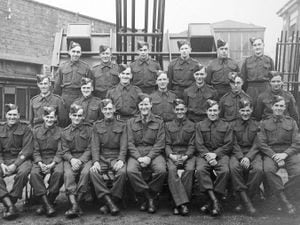New biography shines light on life of famed trade unionist Mary Macarthur
“In today’s world of uncertain employment prospects and insecure or temporary contracts, Mary Macarthur’s mission to empower workers surely has as much relevance today as it did 100 years ago.”
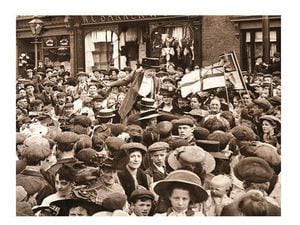
From standing on the picket lines to fearlessly negotiating with government ministers - Mary Macarthur was a force to be reckoned with.
As a trade unionist she helped thousands of women who were employed in some of the worst paid, sweated jobs in the country to achieve better pay and safer conditions.
But more importantly she also inspired them to fight back against bosses who thought they could exploit, intimidate and disregard their female workers.
In 1920, she famously led the chain makers strike in Cradley Heath - but this was just one of many public protests that she threw herself into believing she could make a difference.
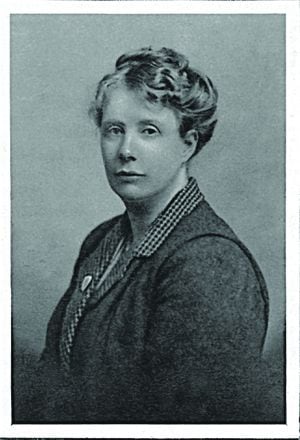
Now a new biography - the first for almost 100 years - has been published shedding new light on many lesser known facets of her life, including her marriage in 1911 to fellow socialist, Will Anderson.
It has been written by labour historian Cathy Hunt and charts her life from Scotland to London, following her youthful conversion to her lifelong cause of socialism and trade unionism.
"She was seen as one of the brilliant leaders of the British labour movement and achieved more for working women than anyone else in that period but outside of the West Midlands and the Black Country she's not really that well known.
"People may have heard her name but not know about what she did but she was an extraordinary character," she says.
Mary was born in Glasgow in 1880, the eldest of six children, and her family ran a drapery business.
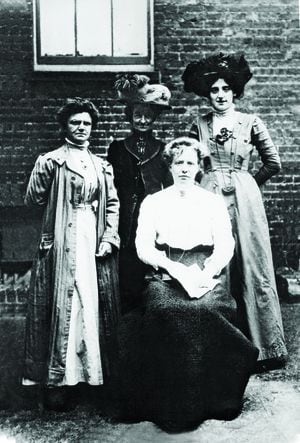
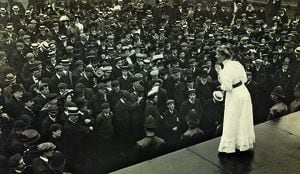
After leaving school, she spent time studying in Germany before returning to Scotland to work for her father John as a bookkeeper and did some freelance journalism on the side.
"In about 1901, she was asked by the local paper to write about a trade union meeting and when she got there she was completely converted to the cause," says Cathy.
After hearing a speech on how badly some workers were being treated by their employers, she was compelled to join the Shop Assistants' Union.
Within a year she was elected as the Union’s Scottish President, and in 1902 became the first female representative on the Union’s national executive committee.
But London was calling and after moving to the capital Mary got a job as secretary for the The Women’s Trade Union League before forming her own union,the National Federation of Women Workers, a few years later.
By the end of 1906, her union had 2,000 members with 17 branches throughout England and Scotland.
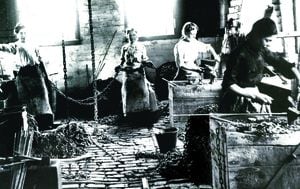
Mary travelled up and down the country helping women to campaign against low wages, long hours and dangerous and insanitary working conditions.
Despite her middle class background, she related to the women's struggles and earned their trust and friendship.
"What I found out was that she was hugely popular with the women she worked with because they knew she understood.
"She wasn't a do-gooder - she was giving women, through a union, the tools to make things better for themselves.
"It was pretty tough for a women to be in a trade union. The bosses would try to dissuade them from joining, saying they didn't need to worry, they would look after like they always had.
"Mary encouraged women to be bold and to be brave and she always told them if they stuck together they would be so much stronger," explains Cathy.
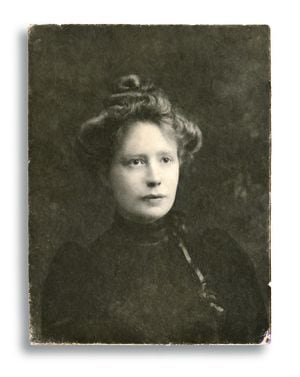
In 1910, the women chainmakers of Cradley Heath laid down their tools to strike for a living wage - a protest that caught the nation's attention.
After ten long weeks they won the dispute and increased their earnings from as little as five shillings (25p) to 11 shillings (55p) a week.
The Cradley Heath Workers' Institute, which now stands at the Black Country Living Musuem, was funded using money left over from the strike fund.
The following year Mary married fellow socialist, Will Anderson,and their daughter Nancy was born in 2015.
"They were a power couple. It was all going so well for them after the end of the of the First World War.
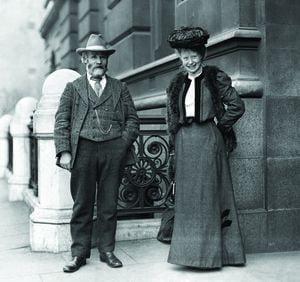
"Will was an MP and Mary stood for an MP in Stourbridge in the first election where women could stand for Parliament. She didn't get in but she came close. Then in 1919 tragedy struck when Will Anderson died of influenza," says Cathy.
To cope with her grief Mary threw herself into her work and travels but a short while later she too fell ill.
"People knew she wasn't herself and she was diagnosed with cancer in 1920. She had two major operations but it became clear that she wasn't going to recover and it was terminal. She died on January 1 1921.
"It was just tragic. They had such a bright future ahead of them. A lot of people have said 'did she wear herself out?' because she lived her life at full pelt but I can't answer that because cancer is one of those things, you just don't know," says Cathy, who lives in Coventry.

It's been almost 100 years since Mary died but Cathy believes her story is just as relevant in today's world.
"There are so many people living on lousy contracts and zero-hour contracts - and there is still a gender gap after all these years. I strongly feel the world needs another Mary Mcarthur," she says.
*Mary Macarthur 1880-1921 The Working Woman’s Champion - Righting the Wrong has been published by History West Midlands and costs £20.


